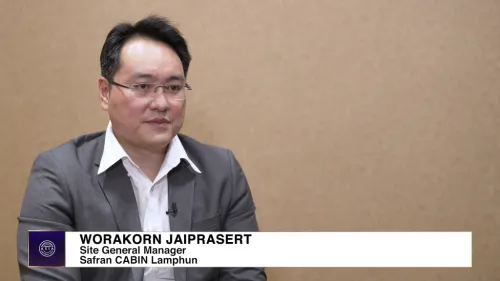Outdated OS exposes manufacturers to cybersecurity risks
86% of industry leaders use outdated operating systems.
Manufacturing companies in Asia are increasingly vulnerable to cybersecurity threats as they integrate more Internet of Things (IoT) and Industry 4.0 technologies into their operations, according to Jiana Edades, Consulting Analyst for Cybersecurity at Frost & Sullivan.
"The digital transformation in the manufacturing sector has integrated advanced technologies like IoT, AI, and automation to enhance productivity," Edades noted.
However, she warned that this has led to significant challenges, particularly with the convergence of information technology (IT) and operational technology (OT), which traditionally were kept separate to secure operational systems.
As manufacturing facilities become more connected, the segregation that protected OT systems is breaking down, making them susceptible to cyber threats. "This IoT convergence expands the threat landscape exponentially as attackers now have more entry points and opportunities to disrupt operations," Edades explained.
The adoption of IoT and other smart technologies is particularly pronounced in Asia, where the manufacturing sector is rapidly implementing these innovations. "According to the 2022 Frost & Sullivan global survey, 57% of manufacturing companies are already utilising industrial IoT, with another 32% planning to implement it soon," said Edades.
However, she pointed out that this rapid adoption comes with inherent security risks, which are exacerbated by the continued reliance on outdated operating systems. "86% of industry leaders use outdated operating systems, which can be targeted by nation-state actors for financial or political gains," Edades added.
The situation is further complicated by the highly fragmented nature of the industry in Asia, where different countries exhibit varying levels of technological and cybersecurity maturity.
The lack of uniform cybersecurity standards and enforcement mechanisms across the region also poses a challenge, leaving manufacturing firms exposed to heightened risks of cyber attacks. These threats not only jeopardise operations but also threaten the intellectual assets of companies.
To combat these risks, Edades recommends that Asian manufacturers prioritise enhancing their cybersecurity resilience. "Investing in robust cybersecurity infrastructure and technologies tailored to their unique needs can significantly bolster defence mechanisms against evolving cyber threats," she advised.
Furthermore, Edades emphasised the importance of comprehensive employee training programs to raise awareness about cybersecurity best practices and mitigate the risk of human error. She also suggested fostering collaboration and information sharing within the industry to help identify and address emerging threats more effectively.













